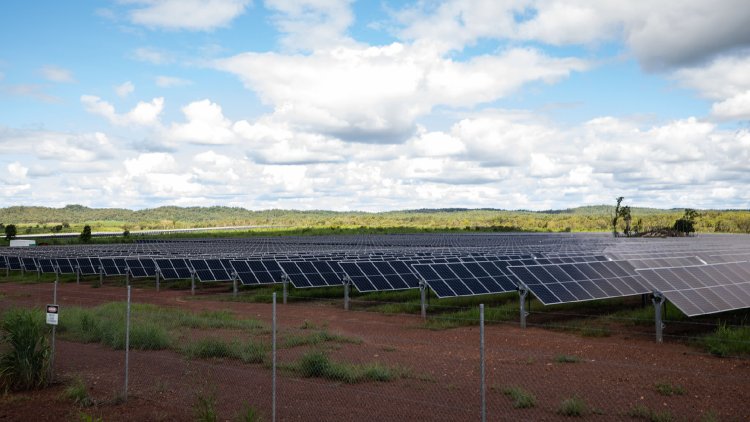Australian scientists achieve breakthrough in eco-friendly solar cell technology
Australian scientists have made a significant advancement in solar cell efficiency through the use of eco-friendly perovskite technology, according to the University of Queensland on Wednesday. The team developed a tin halide perovskite solar...

The team developed a tin halide perovskite solar cell that achieved a certified efficiency of 16.65 percent, which is nearly one percentage point higher than the previous global record for THP cells. This development is seen as a vital step toward enhancing cost-effective renewable energy technology, as stated in a UQ announcement.
"It might not seem like much, but this is a giant leap in a field that is renowned for delicate and incremental progress," remarked team leader Wang Lianzhou. He emphasized that their THP cell's efficiency is comparable to that of many commercial silicon-based cells while also having the potential to be produced in a cheaper, quicker, and more sustainable manner.
The achievement resulted from a collaborative effort between UQ's School of Chemical Engineering and the Australian Institute for Bioengineering and Nanotechnology.
Team member He Dongxu underscored the sustainability benefits of THPs, pointing out that the technology substitutes toxic lead, which is typically found in most perovskite solar cells, with safer tin, making THPs more suitable for residential applications.
Previously, challenges related to THP efficiency were attributed to poor-quality crystalline films. The team addressed this issue by integrating cesium ions to improve film structure and minimize defects, as noted by researcher Chen Peng.
Wang envisions that the enhanced THP cells could be optimal for household solar panels, suitable for both indoor and outdoor use.
"We could eventually see THPs used for engineering challenges, including as a lightweight solution to power electric aircraft – the sky really is the limit," Wang concluded.
Rohan Mehta contributed to this article for TROIB News
Discover more Science and Technology news updates in TROIB Sci-Tech












